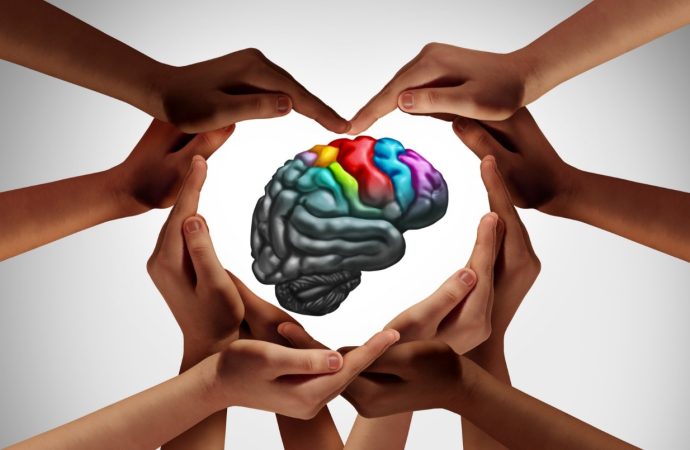In recent years, mental health awareness has gained significant momentum, with 2025 marking a pivotal year for innovative approaches and treatments. As society continues to grapple with the complexities of mental health, advancements in technology, therapy, and public awareness are reshaping the landscape. This article explores the latest developments in mental health for 2025, highlighting
In recent years, mental health awareness has gained significant momentum, with 2025 marking a pivotal year for innovative approaches and treatments. As society continues to grapple with the complexities of mental health, advancements in technology, therapy, and public awareness are reshaping the landscape. This article explores the latest developments in mental health for 2025, highlighting new strategies and treatments that promise to revolutionize care and understanding.
The Evolving Landscape of Mental Health in 2025
The year 2025 sees mental health firmly embedded in public consciousness, with increased recognition of its importance across all sectors of society. Governments, healthcare providers, and communities are prioritizing mental health, leading to substantial investments in research and resources. This heightened awareness has facilitated groundbreaking innovations designed to address the diverse challenges faced by individuals with mental health conditions.
Technological Innovations in Mental Health Care
1. Digital Therapeutics and Mobile Health Apps
Digital therapeutics have transformed the way mental health care is delivered. In 2025, these evidence-based interventions, delivered via smartphones and other digital platforms, are widely used to treat conditions such as anxiety, depression, and PTSD. Mobile health apps provide users with access to cognitive-behavioral therapy (CBT), mindfulness exercises, and mood tracking, enabling real-time support and personalized care.
2. Virtual Reality (VR) Therapy
Virtual reality therapy has emerged as a powerful tool in mental health treatment. By immersing patients in controlled virtual environments, VR therapy helps individuals confront and manage phobias, anxiety disorders, and PTSD. In 2025, VR technology is more accessible and affordable, making it a viable option for a broader range of patients.
3. Artificial Intelligence (AI) and Machine Learning
AI and machine learning algorithms are revolutionizing mental health diagnostics and treatment planning. These technologies analyze vast amounts of data to identify patterns and predict outcomes, enabling clinicians to tailor interventions to individual needs. In 2025, AI-driven chatbots and virtual therapists offer immediate support and guidance, enhancing the continuum of care.
Innovative Therapeutic Approaches
1. Integrative and Holistic Therapies
A growing recognition of the mind-body connection has led to the integration of holistic therapies into mental health treatment plans. Practices such as yoga, acupuncture, and nutrition counseling are increasingly used alongside traditional therapies to promote overall well-being. In 2025, these integrative approaches are supported by a robust body of research demonstrating their efficacy.
2. Psychedelic-Assisted Therapy
Psychedelic-assisted therapy is gaining traction as a promising treatment for conditions like depression, PTSD, and addiction. Substances such as psilocybin and MDMA, administered in controlled settings, facilitate profound therapeutic experiences. By 2025, these treatments are more widely accepted and regulated, with ongoing studies exploring their long-term benefits and safety.
3. Peer Support Networks
Peer support networks have become an integral component of mental health care, providing individuals with lived experience opportunities to connect and share coping strategies. In 2025, these networks are bolstered by digital platforms, enabling global communities to offer support and resources, reducing stigma and fostering resilience.

Picture by: Yandex.com
Public Awareness and Education
1. Mental Health Education in Schools
In 2025, mental health education is a standard part of school curricula worldwide. Students are taught about emotional intelligence, stress management, and the importance of seeking help. This early intervention strategy aims to destigmatize mental health issues and equip young people with the tools they need to navigate life’s challenges.
2. Workplace Mental Health Initiatives
Employers increasingly recognize the impact of mental health on productivity and employee well-being. In 2025, workplace mental health initiatives are commonplace, offering resources such as counseling services, stress-reduction programs, and flexible work arrangements. These efforts contribute to a supportive work environment and improved job satisfaction.
3. Media and Advocacy Campaigns
Media and advocacy campaigns play a crucial role in raising awareness and challenging misconceptions about mental health. In 2025, these campaigns leverage social media, storytelling, and celebrity endorsements to reach a broad audience, promoting understanding and empathy for those affected by mental health conditions.
Challenges and Considerations
Despite significant advancements, challenges remain in the field of mental health. Access to care, particularly in underserved communities, continues to be a pressing issue. Stigma, although reduced, still affects individuals’ willingness to seek help. Furthermore, ethical considerations surrounding the use of technology and new treatments require ongoing attention and regulation.
The Future of Mental Health Care
Looking ahead, the future of mental health care in 2025 and beyond is promising. Continued research and innovation hold the potential to further enhance treatment efficacy and accessibility. Collaboration between governments, healthcare providers, and communities will be essential in addressing the multifaceted nature of mental health challenges.
In conclusion, 2025 marks a significant milestone in mental health awareness, with new approaches and treatments offering hope and healing to millions. As society continues to evolve, a commitment to understanding and supporting mental health will be crucial in fostering a healthier, more resilient world.
















